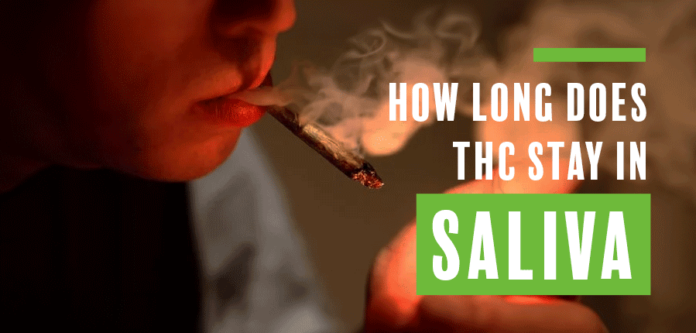Understanding the duration of cannabis’s effects is crucial, particularly for individuals in countries where the substance remains illegal. Certain cannabis strains exhibit diminishing effects by manifesting different indicators. For instance, a Sativa-dominant strain may stimulate hunger, signaling that the impact is nearing its end. While this can be advantageous at times, the uncertainty surrounding the duration of cannabis’s effects often causes stress and anxiety. Consequently, individuals who consume THC-containing cannabis seek information from professionals and experienced users regarding how long THC remains detectable in saliva. Their concerns stem not only from safety issues in countries where marijuana activities are still illegal but also from the fear of prolonged effects and long-term consequences. Given the unpredictable nature of marijuana’s effects, it is essential to grasp the full complexity of THC and its intended purpose.
What does THC do?
The effects of THC vary depending on the individual’s usage, with some experiencing heightened anxiety and aggression while others feel calm and relaxed. Physical health and overall well-being play a significant role in how the body responds to THC. New users often encounter side effects, which can be attributed to its impact on dopamine release in the brain, influencing emotions. While THC may have advantages for individuals with mental disorders, it can also potentially contribute to developing psychiatric conditions.
THC is known to interfere with the hippocampus, the part of the brain responsible for memory formation. This interference can lead to hallucinations, delusions, and altered thinking, particularly in individuals who excessively consume cannabis. In addition to short-term effects, long-term consequences may include memory problems and an increased risk of Alzheimer’s and dementia.
When it comes to the duration of THC-induced effects, the most common period of impact lasts around two hours, with onset typically occurring 10 to 30 minutes after consumption. However, relying solely on time as a basis for decision-making is not advisable. Just because the effects are expected to last a specific duration does not mean one should consume larger quantities. It is always recommended to start with a small dose, observe how the body reacts, and practice moderation to avoid potential health issues.
How Long Does THC Stay In Saliva?
Detection of marijuana in saliva can provide insights into how long it remains in the body. While the effects of cannabis may be felt for a specific duration, traces of it can persist in the system. Although it can be eliminated through processes like urination or defecation, there are natural methods to help expedite the removal of cannabis remnants.
So, how long does THC-laden marijuana stay detectable in saliva? According to experts, cannabis can be detected in saliva for up to 24 hours after ingestion. This means that regardless of the time of consumption or claims made by experienced cannabis users regarding the duration of its effects, traces can still be detected within a day. It’s worth noting that individuals who aim to detect marijuana in someone’s system can achieve more accurate results within 30 minutes of consumption. However, using strong oral rinses or consuming alcohol prior to testing can potentially affect the accuracy of detection devices. Despite this limitation, saliva testing offers rapid and precise results for identifying heavy cannabis usage, albeit with the disadvantage of a 24-hour detection window, which may be advantageous from the user’s perspective.












